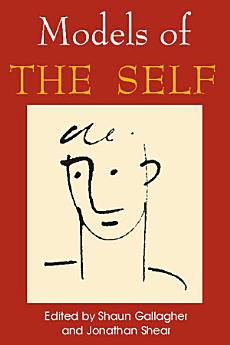Models of the Self
Okt 2013 · Andrews UK Limited
1.0star
1 reviewreport
E-book
913
Mga Page
family_home
Kwalipikado
info
reportHindi na-verify ang mga rating at review Matuto Pa
Tungkol sa ebook na ito
A long history of inquiry about human nature and the self stretches from the ancient tradition of Socratic self-knowledge in the context of ethical life to contemporary discussions of brain function in cognitive science. It begins with a conflict among the ancients. On one view, which comes to be represented most clearly by Aristotle, the issue is settled in terms of a composite and very complex human nature. Who I am is closely tied to my embodied existence. The other view, found as early as the Pythagoreans, and developed in the writings of Plato, Augustine and Descartes, held that genuine humanness is not the result of an integration of 'lower' functions, but a purification of those functions in favour of a liberating spirituality. The animal elements are excluded from the human essence. The modern debate on the problem of the self, although owing much to the insights of Locke and Hume, can still be situated within the context of the two schools of ancient thought, and this has led many to despair over the lack of apparent progress in this problem. Today, of course, we often tend to look to science rather than philosophy to develop our understanding of a wide range of fundamental issues. To what extent is the problem of the self a scientific issue? Can insights from the study of neuropsychology and cognitive development in infancy provide a new perspective? Can the study of schizophrenia and dissociative identity disorders tell us anything about the nature of human self-consciousness? Many would answer yes to the above questions, but then is it not also the case that the study of exceptional 'self-actualised' human experience is equally relevant? And can the phenomenological tradition, dedicated to the systematic study of human experience, and contemporary analytic approaches in philosophy help us out of some of the impasses that have bedevilled the empiricist tradition? MODELS OF THE SELF includes all these perspectives in an attempt to cast light on one of the most intractable problems in science and the humanities.
Mga rating at review
1.0
1 review
I-rate ang e-book na ito
Ipalaam sa amin ang iyong opinyon.
Impormasyon sa pagbabasa
Mga smartphone at tablet
I-install ang Google Play Books app para sa Android at iPad/iPhone. Awtomatiko itong nagsi-sync sa account mo at nagbibigay-daan sa iyong magbasa online o offline nasaan ka man.
Mga laptop at computer
Maaari kang makinig sa mga audiobook na binili sa Google Play gamit ang web browser ng iyong computer.
Mga eReader at iba pang mga device
Para magbasa tungkol sa mga e-ink device gaya ng mga Kobo eReader, kakailanganin mong mag-download ng file at ilipat ito sa iyong device. Sundin ang mga detalyadong tagubilin sa Help Center para mailipat ang mga file sa mga sinusuportahang eReader.






